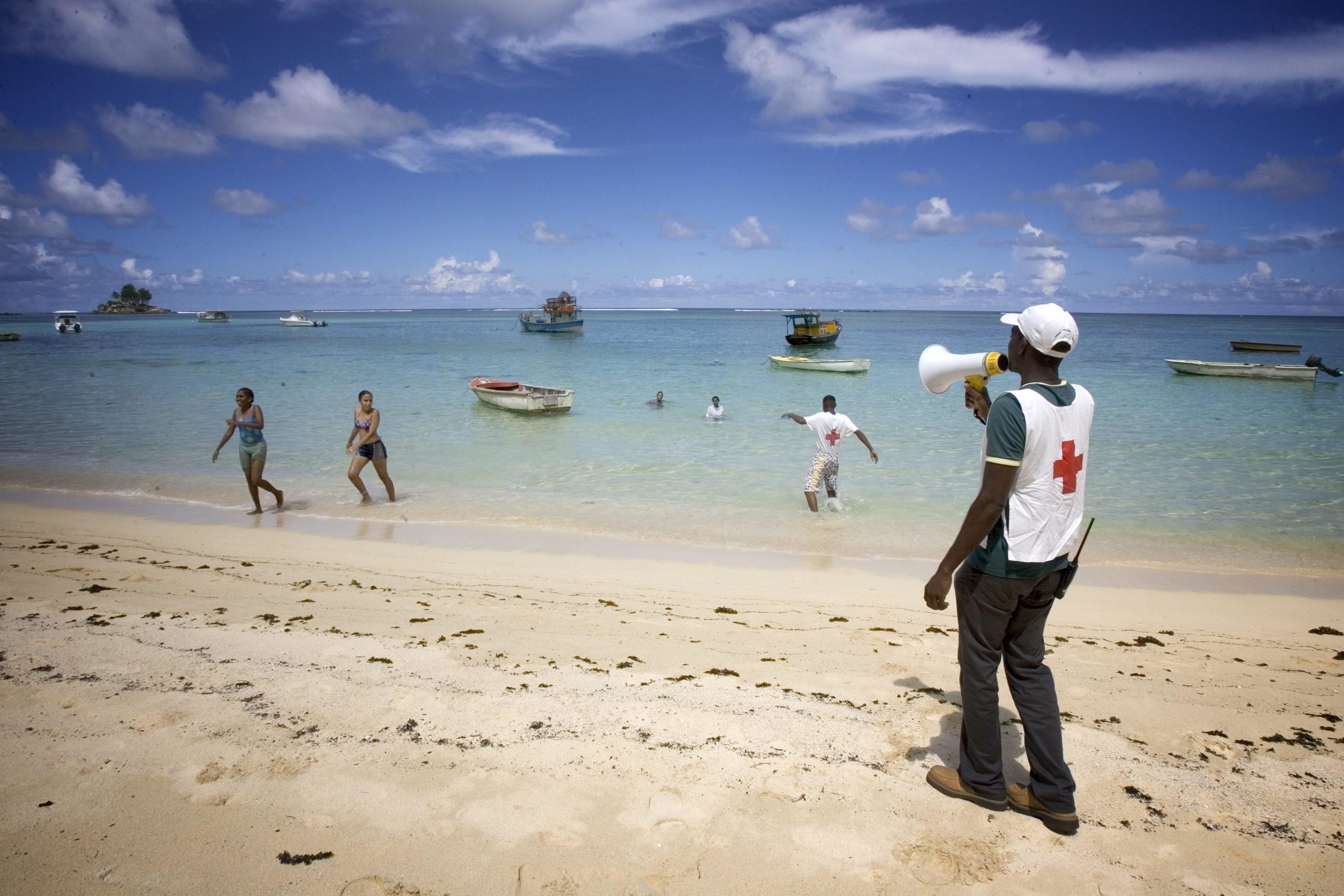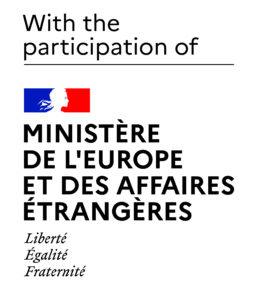With its unique history, the humanitarian sector is currently experiencing changes of unprecedented speed and scope. First of all, the rapid and unpredictable evolution of the global environment is putting great pressure on the international aid system: prolonged crises and armed conflicts, climate change, chronic underdevelopment, resurgence of the sovereignty of States, etc.
The French Red Cross Foundation will hold its annual international conference on July 1 and 2 in Reunion Island, on the theme “Humanitarian Transition in the Indian ocean”. Co-organized with the Institute of Research for Development (IRD), the French Red Cross and its Regional Intervention Platform for the Indian Ocean (PIROI), and the University of La Reunion, this event will also benefit from the support of the Crisis and Support Center of the Ministry of Europe and Foreign Affairs.
This conference will seek to analyze the changes underway, to question the most important issues and to create a dialogue between academic and humanitarian actors to better define, understand and anticipate the humanitarian transition underway in the island states of the Indian ocean in connection with neighboring continental countries.

Six thematic round tables will punctuate the two days:
July 1st - Conference Day 1
Please note that you must withdraw 2 hours from the below schedule to participate from Paris
Mr. Marcel ESCURE, Ambassador delegated to the regional cooperation in the Indian Ocean
Mr. Vêlayoudom MARIMOUTOU, Secretary General of the Indian Ocean commission
Mr. Jean-Christophe COMBE, Director General of the French Red Cross
Mrs. Pascale CHABANET, Representative of the Institute of Research for Development in Reunion
Mr. Frédéric MIRANVILLE, President of the University of La Réunion
This roundtable aims to provide some background on the forms and practices of humanitarian transition in the islands of the southwest Indian Ocean. Indeed, the juxtaposition of climatic hazards, disaster risks, health crises and a strong disparity in development leads to fragmented humanitarian action between actors, temporalities and operational sectors of aid. In this perspective, cooperation becomes a key word and with it, the understanding of the articulation between the different strata of action, financing and decision-making. Moreover, if the specificity of the region is not necessarily due to its geographic typology, the absence of declared conflict can obscure the humanitarian challenges that are imposed and circulate from one country to another in the areas of access to health care, water and nutrition, and the issue of migration. We then seek to better understand the historical, national and regional context to comprehend the crises and their responses.
Between humanitarian and development issues; the European Union’s perspective on crisis preparedness
Michele ANGELETTI – Technical Assistant for the Directorate General ECHO for the Southern Africa and Indian Ocean Region
and Stéphanie DRUGUET – International Cooperation Officer for the DG International Partnership Delegation of the European Union in Mauritius / Seychelles
Health issues, humanitarian stakes? Realities and challenges for the actors
Charlotte DEZE – Regional Advisor for Global Health – French Embassy in Tananarive
The Malagasy Red Cross facing crises and vulnerabilities
Andoniaina RATSIMAMANGA – General Secretary of the Malagasy Red Cross
Realities of the social and solidarity economy and humanitarian aid in the Indian Ocean. The multiple dimensions of a transition
Ben ZEGHADI – General Delegate CRESS of Mayotte and National Delegate of ESS France
While the climatic and epidemiological profiles of the islands are similar, their levels of economic development differ greatly, their modes of governance of risks and disasters are not the same and their cultural differences are very marked. Therefore, the region confronted by similar hazards, but the regional cooperation responses and their objectives may differ from one island to another. Who are the actors of this response? What are the current and future forms of regional cooperation and the means that can be mobilized? How do they coordinate?
Institutional regional cooperation at the service of the populations of the Indian ocean zone: current mechanism and opportunities
Laurent AMAR – Diplomatic Advisor to the Prefect, Liaison Officer to the IOC
Dialogue with a wide range of public and civil stakeholders in all the islands of southwestern Indian ocean. The different temporalities of humanitarian emergencies and the longer timeframe of development
Nicolas MEISEL – Regional Economist, Indian Ocean Regional Directorate, AFD.
After 20 years of regional cooperation at the service of the populations, what lessons have been learned and what evolution to cope with new challenges?
Christian PAILLER – Head of delegation of PIROI
Sustainable environment and climate change
Gina BONNE – IOC “Sustainable environment and climate change” officer
National disaster risk management offices have become the cornerstones of the climate vulnerability response system. However, the countries of the southern Indian Ocean zone do not have the same frames of reference for the functioning of their institutions. Despite improvements in recent years, several countries in the zone still need to strengthen their legislation(s) to manage risks disaster and impacts more effectively and coordinate with civil society.
The integration of legal and operational dimensions in disaster response: a structuring trend in international cooperation
Olivier DUPERE – Lecturer in public law at the University of La Réunion (Centre de Recherche Juridique, E.A. 14)
The role of law and politics in facilitating international response’s operations
Isabelle GRANGER – Regional Coordinator Disaster Law Program, FICR
The response to a disaster goes through the logistic response. Example of the Logistics HUB in Reunion Island to respond to a major disaster in Mayotte
Lieutenant-Colonel Stéphane DRENNE – Military assistant to the CEMIZ and head of the Crisis Management Office
Disaster Risk Management in the Comoros: State of play and perspectives
Madihali MOHAMED DJOUNEID – Technical advisor to the General Directorate of Civil Security
2 July - Conference Day 2
Please note that you must withdraw 2 hours from the below schedule to participate from Paris
Ethics and knowledge: preparing the university and civil society to think today about tomorrow’s actions.
Mr. Thierry MALBERT, Doctor in Anthropology, lecturer in education’s sciences at the University of La Réunion
Ms. Virginie TROIT, Exectutive director of the Fondation Croix-Rouge française
The response to the health emergency is based on two complementary pillars in the region: the community approach and public health. Madagascar and the Comoros, in particular are relying on community health to help achieve their health goals, while France is turning to its public health system. What are the consequences? How are these approaches perceived by beneficiaries? What is the role of the role of research in their implementation?
The use of community care in Madagascar: place and consequences
Marilys-Victoire RAZAKAMANANA – Doctor of Economics
Community participation and involvement in the fight against COVID-19 in Madagascar
Jean-Claude RAKOTOMALALA – President of the COMARESS platform and Vice President of the French-speaking African CSO Network for Immunization (OAFRESS)
Community involvement in immunization in the Comoros
Daniel ALI SOUMAILI – Secretary General of the Comorian Red Crescent
The impact of COVID-19 on the maintenance of care for prisoners with HIV and/or tuberculosis in Madagascar
Chiarella MATTERN – Anthropologist attached to the Pasteur Institute of Madagascar.
The perception of natural risks as well as health risks by the populations is at the core of the concerns of public and associative actors. The latter often encounter communication obstacles with the inhabitants, whose language and culture they do not always share and whose daily survival problems can sometimes relegate the question of natural risks to the background.
Psychosocial aspects of resilience: study on the memory of disasters in Reunion Island: “The memory of disasters as a lever for resilience
Francisca ESPINOZA – Doctor of Sociology
Socio-anthropological approach on the perception of natural risks in Mayotte
Emmanuel SOUFFRIN and Amber CRIPPS – ESOI (Ethno-sociological studies of the Indian Ocean)
Risk culture among youth in Mauritius and Rodrigues – a participatory approach based on vulnerability and capacity assessment
Navin MAHADOO – Program Officer and Head of Disaster Management (DRM) at the Mauritius Red Cross.
Major hazard education and teacher training in Reunion Island
Isabelle FOUQUART – Academic coordinator for major risks and ORSEC referent, Academy of La Réunion
The regional sharing of scientific resources and data with field actors is key to organize humanitarian action. Climate and epidemiological monitoring networks allow the implementation of responses to potential risks quickly and efficiently. The sharing of knowledge, for example in terms of vulnerability, also knowledge, such as vulnerability, also allows for the implementation of appropriate policies.
The challenges in terms of cyclone watch and forecasting in the Indian Ocean: better transcribing the impacts of tropical cyclones and the associated uncertainties, and better communicating to the general public and crisis managers on the associated dangers
Emmanuel CLOPPET – Interregional Director of Météo-France for the Indian Ocean
Highlighting populations vulnerable to the risk of water pollution in Mayotte: identification and translation issues
Aude STURMA – Doctor of Sociology associated with CERTOP, Centre for the study and research of work, organization and power
Between data and action: innovations from the Kenyan Red Cross
Halima SAADO ADBILAHI – Director of Research, ICHA (International center for humanitarian affairs) of the Kenyan Red Cross
The challenges of scientific knowledge transfer. Reflections from an ongoing project in Madagascar
Dolores POURETTE – Doctor of Anthropology, IRD, UMR CEPED, Centre populations et développement, Paris
Mr. Gilles LAJOIE, President of the Academic Council of the University of Reunion
Mrs. Florine CLOMEGAH, Deputy Regional Director FICR
Mrs. Françoise FROMAGEAU, Vice-president of the Red Cross Foundation
Mr. Jacques BILLANT, Prefect of La Réunion
The comments and opinions expressed during this debate are those of independent researchers and do not necessarily reflect those of the French Red Cross Foundation.
Discover the other Conferences of the Foundation on Humanitarian Transition:
International Conference in Cameroun
International Conference in Kenya
Research projects in these areas:
| Alexandra RAZAFINDRABE Tantely Voahirana ANDRIANANTOANDRO Christiane RAFIDINARIVO Aude STURMA Marilys RAZAKAMANANA Francisca ESPINOZA Annabelle JACCARD |




